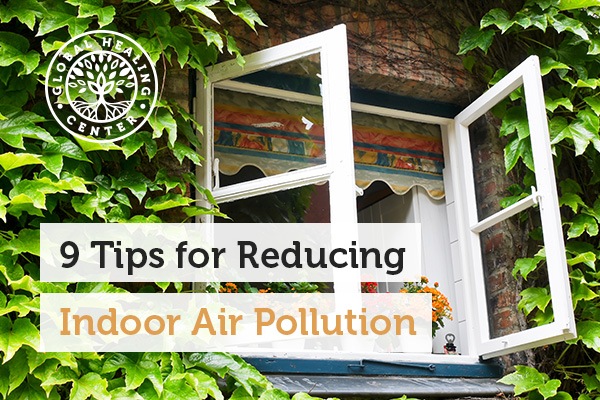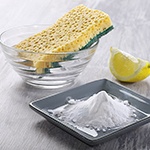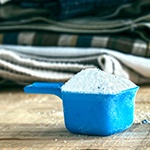
Just as you drink pure water, isn't it vital to ensure the air you breathe is also clean? Everyone can benefit from breathing cleaner air, and many people suffer horribly because of air pollution. It's common for people to spend up to 75 percent of their time in their homes, and the sources of air pollution in a home can be many.
Indoor air pollution causes can be immediate emergencies, such as a gas leak or asbestos. It can also be slow, chronic, and less apparent, as with the out-gassing of paints, fabrics, and upholstery. There are also biological toxins such as dust mites, pet dander, mold, and mildew.
The variation in chemicals and pollutants can produce a range of effects. These pollutants bring on headaches for some people, and others experience sinus congestion, coughing, or allergic rhinitis. When you experience intense allergen response, it can result from exposure to multiple pollutants all at once. For example, when you paint in a non-ventilated room. But what about other respiratory ailments or lingering allergies that are exacerbated by constant exposure to air pollutants?
The Number 1 Tip to Reduce Indoor Air Pollution
1. Ventilation
Open your windows! Creating circulation is so essential. The recent emphasis on energy conservation has caused homes to be constructed in an air-tight, sealed way; this traps pollutants right in your home. Ventilation can help remove the pollution.[1] Lung function can be improved by ventilation because it reduces the harmful effects of indoor air pollution.[2]
Other Ways to Improve the Air Quality in Your Home
2. Check Out Your HVAC System
Make sure every three to five years, you are cleaning your HVAC system. The timing will depend on where you live, how often you're using the HVAC system, and if a family member has a respiratory problem. HVAC duct cleaning is highly beneficial to improving indoor air quality.[3]
3. Use Organic, Natural Cleaning Products
For people with issues with their respiratory tract or lungs, like asthma, all-natural cleaning products — especially ones you make yourself — provide one of the best defenses for your health. Try to replace toxic or chemical-based cleaning products with natural, organic alternatives. You'll find these options at many stores, or you can make these amazing DIY cleaning recipes. Also, the classic combo of vinegar and baking soda works great on drains.[4]
4. Invest in Natural Scents
We all want our homes to smell fresh and clean, but before you grab that fragrant aerosol spray can think twice. Instead, use essential oils with a diffuser. Lavender, lemongrass, and tea-tree or orange-blossom oil work great and don't contain any air-polluting chemicals. You can also dilute oils in distilled water and use them with a spray bottle for a chemical-free home or office spray.
5. Decorate Your Space With Plants
Plants are natural air purifiers and excellent home decor. Plants absorb toxic chemicals through their leaves, and the roots and soil bacteria remove trace levels of toxic vapors.
6. Use Chemical-Free Furniture & Fabric
There are many cost-effective tips that you can implement to reduce indoor air pollution, but as your budget allows, we suggest some decor changes. When replacing bedding or towels, look for organic cotton and toxin-free materials. When replacing larger items like a couch, look for manufacturers that are crafting furniture with non-toxic materials. We also suggest looking into purchasing natural wooden furniture.
7. Keep Humidity Levels Low
When your home is too humid, you might experience mold and mildew, which is not helping indoor air pollution. There are tons of ways you can reduce humidity. Our favorites are taking cooler showers, utilizing your air conditioner, and drying your laundry outside during the summer.
8. Check for Leaks
Regularly check your appliances and pipes for leaks. Leaking pipes and faucets will add moisture into the air, while leaks in fuel-burning appliances will add harmful chemicals and toxins to the air.
9. Look into Air Purifiers & Dehumidifer
Invest in a quality indoor air purifier because air filtration is one of the most feasible methods to improve air quality.[5]If you're looking to reduce humidity, which can cause mold in your home, then you should invest in a dehumidifer.
Enjoy the Cumulative Benefits of Breathing Clean Air
Breathing cleaner air isn't just for folks with asthma, allergies, or children. The fact is that we all can benefit from breathing cleaner air, especially over the long term. Utilizing the tips above can provide a protective effect against the worsening of respiratory symptoms caused by indoor air pollution.[6]
References (6)
- White LE, Clarkson JR, Chang SN. Health effects from indoor air pollution: case studies. J Community Health. 1987 Summer-Fall;12(2-3):147-55.
- Roy A, Chapman RS, Hu W, Wei F, Liu X, Zhang J. Indoor air pollution and lung function growth among children in four Chinese cities. Indoor Air. 2012 Feb;22(1):3-11. doi: 10.1111/j.1600-0668.2011.00748.x. Epub 2011 Oct 24.
- Ahmad I, Tansel B, Mitrani JD. Effectiveness of HVAC duct cleaning procedures in improving indoor air quality. Environ Monit Assess. 2001 Dec;72(3):265-76.
- Rafuse J. New CMHC guide offers suggestions for improving indoor air quality. CMAJ. 1994 Mar 1;150(5):764-5.
- Candiani G, Del Curto B, Cigada A. Improving indoor air quality by using the new generation of corrugated cardboard-based filters. J Appl Biomater Funct Mater. 2012 Sep 27;10(2):157-62. doi: 10.5301/JABFM.2012.9705.
- Graudenz GS, Kalil J, Saldiva PH, Latorre Md Mdo R, Morato-Castro FF. Decreased respiratory symptoms after intervention in artificially ventilated offices in São Paulo, Brazil. Chest. 2004 Jan;125(1):326-9.
†Results may vary. Information and statements made are for education purposes and are not intended to replace the advice of your doctor. If you have a severe medical condition or health concern, see your physician.







